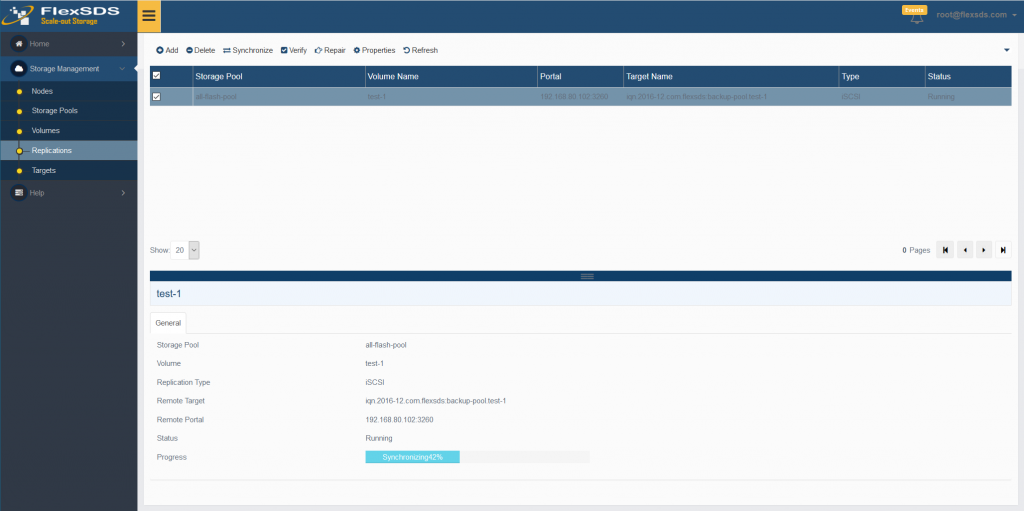Replication to iSCSI Target
Sometimes the data on the disk might be lost in some reason (i.e. hardware damage), we can make a real-time backup for a specified volume by creating an synchronous / asynchronous replication service. The feature enabling you to create mirror backup from volume to SAN service like iSCSI, iSER and NVMe-oF target. The benefits of asynchronous replication is no effecting I/O speed of source volume.
1. Create Asynchronous /synchronous Replication to iSCSI Target:
Step 1. Select Replications in the left panel and click the Add button on the top toolbar of the management system, then the Create Replication Service wizard popup up.
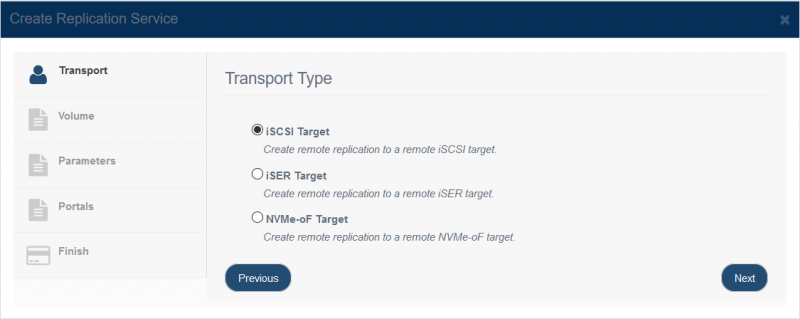
Choose iSCSI Target in the Transport Type.
Press the Next button to continue.
Step 2. Select the source volume where user wants to create the remote replication
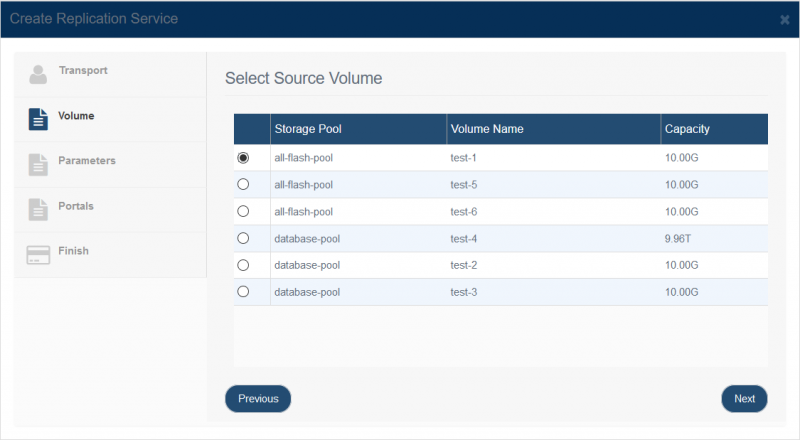
Choose one volume.
Press the Next button to continue.
Step 3. Discover remote iSCSI target.
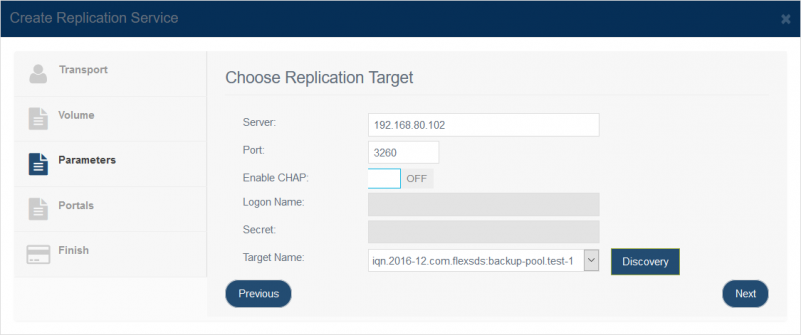
After you input the host name and port of the remote iSCSI, if the remote iSCSI server need CHAP authorization, need check “Enable CHAP” on and then specify Logon Name and Secret.
Press the Discovery button, it will show you all the iSCSI targets on the remote server, select one as remote mirror device.
Then press the Next button to continue.
Step 4. Setting Portals and Options of replication.
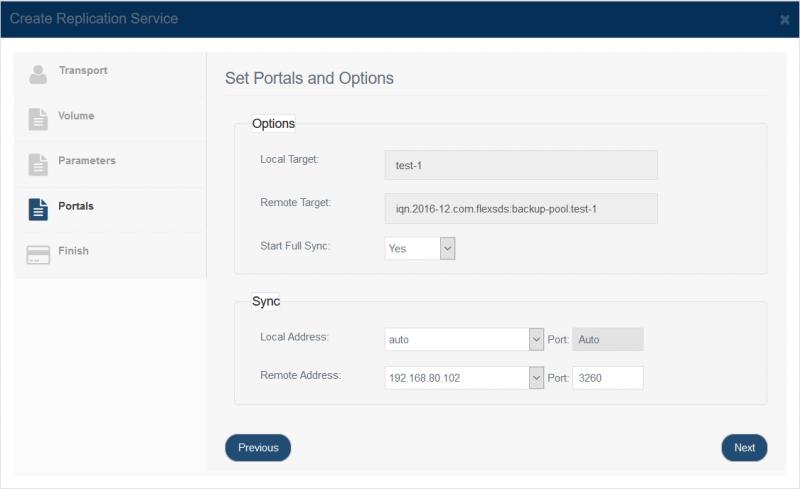
To make the synchronous /asynchronous replication device has full synchronization form base volume and remote iSCSI target select the ‘Full Sync’, otherwise, select ‘No Sync’ for blank volume (new created) or want sync later.
Specify local and remote portal pairs (IP address and port).
Note: All data on the mirror device will be destroyed after synchronization.
Step 5. Complete Replication Creation
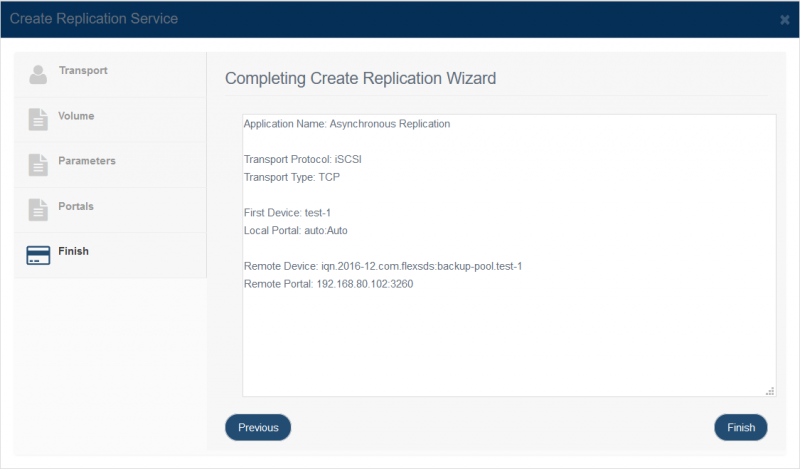
If any change is required press the Back button, otherwise, press the Finish button to complete mirror application creation, after successfully created, the replication service will shown in the main interface.
